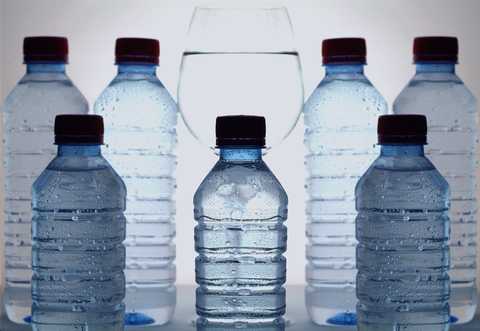The Dangers of Overhydration
Can you actually drink too much water? The answer is yes. When the body takes in more water than it excretes, overhydration can occur. This condition can dilute the body's sodium level which can result in digestive problems, behavioral changes, shock, seizures, coma, haemorrhage, brain damage and even death. Although drinking plenty of water is important for proper hydration, it is equally important not to drink too much water on a daily basis.
Proper Hydration Levels
The body naturally regulates water levels to ensure that people have the right levels of hydration, and proper levels usually only vary up or down by 1%. Consuming a large volume of water or other fluid in a very short period of time can cause overhydration, which is a very serious condition.
Symptoms of Overhydration
Typically, overhydration is not caused by drinking too much water alone, although in some cases, excessive thirst can being processed through the body normally. Symptoms of overhydration include confusion, drowsiness, difficulty concentrating, blurred vision, muscle cramps, nausea, rapid breathing and flushing. Often blood pressure will become elevated, and the individual may experience twitching or muscle weakness and even paralysis.
How to Prevent Overhydration
As far as hydration is concerned, it is more common to become dehydrated than to become overhydrated. In order to prevent overhydration, individuals should consume normal amounts of water on a regular basis, and make sure to drink water when thirsty. In average weather conditions, adults should usually drink 8 to 10 cups of water each day. This amount may be exceeded when working in very hot conditions, or performing long stretches of intense physical activity, in order to maintain adequate hydration.

Dangers of too Much Fluid in the Body
Too much fluid in the body will dilute extracellular fluid or water in the blood, resulting in a life threatening health condition. Salt levels will fall when the body is overhydrated, and lack of salt will cause mental challenges. Excess water will cause body cells to physically swell, causing intra-cranial pressure which will result in headaches and nausea. Eventually, if overhydration continues, blood flow will become restricted in the body which can cause seizures.
Infants and Proper Hydration
Infants tend to become overhydrated more often than adults, because their tiny kidneys are not yet working to full capacity. It takes infant bodies longer to completely process water and other fluids; therefore it is important for new parent to be careful not to overhydrate their babies. Pediatricians can typically advise parents as to the proper amount of fluid to feed their newborns, and how much those fluids should be increased as the babies grow to ensure proper hydration.
Drinking water in the right amounts is essential for maintaining maximum health. Age, current health conditions, levels of daily exercise along with job duties and work environments will also impact the amount of water and other fluids individuals need to drink.



